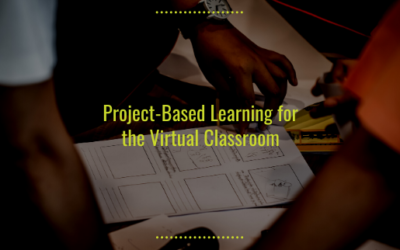Holistic Progress Cards under NEP 2020 – A Paradigm Shift in Student Assessment
Introduction: Moving Beyond Marks
For decades, Indian education has been dominated by marks and grades. These conventional report cards provide a limited view of learning, ignoring creativity, collaboration, and emotional well-being. The National Education Policy (NEP) 2020 responds with the Holistic Progress Card (HPC)—a multidimensional, 360° student report that nurtures whole-child development (Official NEP 2020 Document).
What is a Holistic Progress Card (HPC)?
An HPC is a student-centric assessment tool designed by NCERT/PARAKH (PARAKH NCERT). It expands evaluation beyond academics to include socio-emotional skills, creativity, values, and physical development. Feedback comes from teachers, parents, peers, and the students themselves, ensuring inclusivity and accuracy.
Key Features of Holistic Progress Cards
- 360-Degree Evaluation: Combines teacher, self, peer, and parent assessments (CBSE HPC Guide).
- Multi-Domain Indicators: Academic performance, life skills, creativity, co-curriculars, values, health, and fitness.
- Competency-Based & Formative: Continuous observation rather than one-off exams.
- Descriptive Feedback: Actionable narratives instead of raw scores.
- Evidence-Based: Anchored in portfolios, projects, anecdotal records, event sampling, and real-life tasks.
- Digital & Eco-Friendly: Paperless, sustainable formats integrated with school ERPs.
Why This Shift Was Needed
- Rote Learning & Exam Pressure: HPCs reduce dependence on memorization.
- 21st-Century Skills: Critical thinking, collaboration, creativity, and emotional resilience are emphasized.
- Equity & Personalization: Every child’s strengths are recognized.
- Parent Partnership: Parents gain deeper insights to support learning (Holistic Progress Card Portal).
Traditional Marksheets vs. Holistic Progress Cards
| Aspect | Traditional Marksheets | Holistic Progress Card (NEP 2020) |
|---|---|---|
| Focus | Marks & grades only | Academic + Social + Emotional + Physical |
| Evidence | Exams & tests | Portfolios, projects, task-based assessments |
| Feedback | Numeric scores | Descriptive narratives & rubrics |
| Evaluators | Teacher only | Teacher + Student + Peer + Parent |
| Purpose | Ranking students | Guiding growth & skills development |
| Format | Paper report | Digital, eco-friendly, ERP-enabled |
Implementation in Schools
HPCs are rolled out in line with NEP’s four-stage structure:
- Foundational (Grades 1–2): Play-based, aligned with NIPUN Bharat for early literacy & numeracy (NIPUN Bharat Guidelines).
- Preparatory (Grades 3–5): Focus on teamwork, problem-solving, and creativity.
- Middle (Grades 6–8): Competency rubrics, project-based learning, collaborative tasks.
- Secondary (Grades 9–12): Career readiness, higher-order thinking, portfolios, and self-assessments.
Practical Tools Schools Can Use
- Portfolios of student work.
- Peer & Self-Evaluation Sheets.
- Role Plays & Task-Based Assessments.
- Anecdotal Records & Event Sampling.
- Parent Feedback Forms.
Example: Maharashtra SCERT will implement HPCs for Class 1 starting 2025, integrating academics, social skills, and life competencies (Times of India Coverage).
Role of Technology & ERP Platforms
Manual adoption of HPCs is resource-intensive. Digital platforms make them scalable:
- Preloaded Templates: Ready-to-use, stage-specific formats.
- Analytics Dashboards: Competency trends, growth curves, and heat maps.
- Multi-Rater Inputs: Structured channels for teacher, student, peer, and parent.
- Eco-Friendly Reports: Paperless delivery supporting sustainability.
- Compliance Tools: Alignment with NEP 2020 and NIPUN Bharat.
Vawsum ERP enables seamless HPC adoption by digitizing assessments, reducing administrative load, and empowering teachers and parents.
Benefits of Holistic Progress Cards
Students: Recognition beyond academics, stronger motivation through acknowledgment of creativity, leadership, and social skills. Reduced exam stress and increased self-confidence due to constructive feedback.
Teachers: Richer insights into student growth across domains, enabling personalized instruction and differentiated teaching. HPCs also support professional reflection, helping teachers align classroom practices with 21st‑century skills (CBSE Teacher Guide).
Parents: A transparent and comprehensive view of overall development. Parents receive actionable suggestions to support learning at home, understand a child’s strengths, and engage more effectively with teachers.
Schools: Alignment with NEP 2020 and NIPUN Bharat ensures policy compliance. HPCs enhance reputation as progressive institutions, foster trust among parents, and provide data-driven insights for curriculum planning, teacher training, and continuous improvement.
Challenges & the Way Forward
- Teacher Training: Shifting from scores to descriptive evidence.
- Standardization: Ensuring consistent evaluation across schools.
- Parent Awareness: Helping parents read and value HPCs.
- Data Management: Avoiding overload through ERPs.
Way forward: professional development, template standardization, digital workflows, and community sensitization (NCERT HPC Concept Note).
Conclusion: A New Era of Assessment
The Holistic Progress Card is not just compliance—it’s a mindset shift toward nurturing whole learners. With NEP 2020, PARAKH frameworks, and ERP-enabled digital tools, Indian schools can deliver 360° evaluations that prepare students for real-world success.
Education is more than marks—it’s about unlocking every child’s true potential.
FAQ
Q1. What is a Holistic Progress Card under NEP 2020?
A multidimensional, 360° evaluation tool assessing academics, life skills, values, creativity, and physical development (NCERT).
Q2. How is it different from marksheets?
It goes beyond grades with evidence-based feedback from teachers, peers, parents, and students.
Q3. What role does NIPUN Bharat play?
At the foundational stage, HPCs align with NIPUN Bharat’s literacy and numeracy goals.
Q4. How can schools implement HPCs easily?
By using portfolios, project-based learning, role plays, and digital ERP systems.
Q5. Are HPCs eco-friendly?
Yes, digital HPCs save paper and reduce administrative effort while improving accessibility
Categories
Tags
Recent Posts
- Holistic Progress Cards under NEP 2020 – A Paradigm Shift in Student Assessment
- Release Notes for Vawsum Web Version & Admin Panel Version – 2.11
- Release Notes for Vawsum Web Version & Admin Panel Version – 2.10
- Release Notes for Android Version 4.83
- Release Notes for Vawsum Web Version & Admin Panel Version – 2.9






Recent Comments